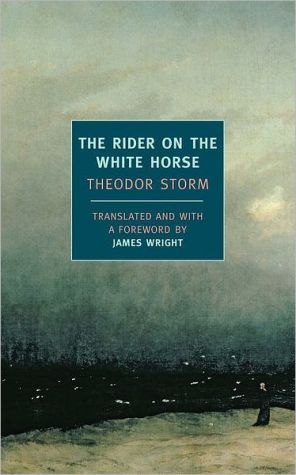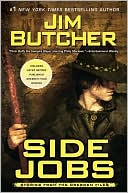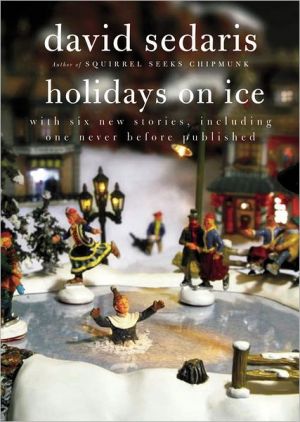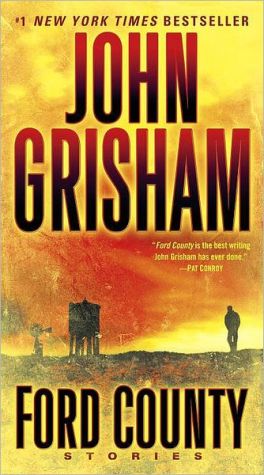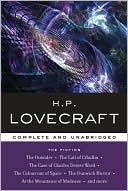The Rider on the White Horse
“The Rider on the White Horse” begins as a ghost story. A traveler along the coast of the North Sea is caught in dangerously rough weather. Offshore he glimpses a spectral rider rising and plunging in the wind and rain. Taking shelter at an inn, the traveler mentions the apparition, and the local schoolmaster volunteers a story.\ The story is both simple and subtle, and its peculiar power is to surprise us slowly. It is a story of determination, of a young man, Hauke Haien, living in a remote...
Search in google:
“The Rider on the White Horse” begins as a ghost story. A traveler along the coast of the North Sea is caught in dangerously rough weather. Offshore he glimpses a spectral rider rising and plunging in the wind and rain. Taking shelter at an inn, the traveler mentions the apparition, and the local schoolmaster volunteers a story.The story is both simple and subtle, and its peculiar power is to surprise us slowly. It is a story of determination, of a young man, Hauke Haien, living in a remote community (Storm depicts the village with the luminous precision of a Vermeer), who is out to make a name for himself and to remake his world. It is a story of devotion and disappointment, of pettiness and superstition, of spiritual pride and ultimate desolation, and of the beauty and indifference of the natural world. It is a story that opens up in the end to uncover the foundation of savagery on which human society rests. Theodor Storm’s great novella, which will remind readers of the work of Thomas Hardy, is one of the supreme masterpieces of German literature. It is here limpidly translated by the American poet James Wright, along with seven other shorter works, including the lyrical love story “Immensee.”The Barnes & Noble ReviewCompositionally speaking, if a structural principle can be inferred from the eight stories that make up The Rider on the White Horse -- a selection of writings by the German author Theodor Storm (1817–88) -- it might well be this: Make it Old. Storm was an adept of the Novelle genre, in which the focus of a story inclined toward inspecting the ramifications of an event, whether it be an aborted love affair or, as in the case of the titular story, one man's effort to oversee a village dam. In practice, the stories in this collection -- with the exception of "A Green Leaf" and "Veronika" -- build less toward epiphanous moments than toward moments of refracted quietude where a sigh is more likely to be educed from the reader than an exclamation. Resignation is the dominant note tolled throughout these stories, which are often steeped in the passage of time; as such, observations like these burgeon: "[H]er childhood existed in a place far beyond the birth of all the others"; "It was an old volume its leaves were yellow and coarse"; "We had hearts as true as yours how can you young people know how it was then?" For those who find themselves at odds with our youth-obsessed zeitgeist, there is succor to be found in these rebelliously old-fashioned stories, which contain beautiful high points such as this, which comes from "Immensee": "The moon no longer shown through the window; the full darkness had come; but the old man still sat, hands folded, in his easy chair, and gazed into the desolation of the room Then he pushed his chair up to the table, opened a book, and buried himself in those studies to which he had once given all the best powers of his young manhood." --Christopher Byrd
\ Michael Dirda"German short fiction of the 19th century" may sound like the title for a college course, and probably a rather dull and earnest one at that. In fact, the stories of Ludwig Tieck (for example, "The Elves"), E.T.A. Hoffmann (such as that unsettling masterpiece, "The Sand Man," famously explicated by Freud) and Heinrich von Kleist (in particular, his classic of revenge, "Michael Kohlhaas") are among the glories of world literature, being at once suspenseful, eerie and sometimes humorous, albeit usually in a macabre way. Many of these 19th-century Novellen, as they are called, are clearly related to fairy tale and legend. Arguably the greatest of them all is "The Rider on the White Horse," by Theodor Storm\ —The Washington Post\ \ \ The Barnes & Noble ReviewCompositionally speaking, if a structural principle can be inferred from the eight stories that make up The Rider on the White Horse -- a selection of writings by the German author Theodor Storm (1817–88) -- it might well be this: Make it Old. Storm was an adept of the Novelle genre, in which the focus of a story inclined toward inspecting the ramifications of an event, whether it be an aborted love affair or, as in the case of the titular story, one man's effort to oversee a village dam. In practice, the stories in this collection -- with the exception of "A Green Leaf" and "Veronika" -- build less toward epiphanous moments than toward moments of refracted quietude where a sigh is more likely to be educed from the reader than an exclamation. Resignation is the dominant note tolled throughout these stories, which are often steeped in the passage of time; as such, observations like these burgeon: "[H]er childhood existed in a place far beyond the birth of all the others"; "It was an old volume...its leaves were yellow and coarse"; "We had hearts as true as yours...how can you young people know how it was then?" For those who find themselves at odds with our youth-obsessed zeitgeist, there is succor to be found in these rebelliously old-fashioned stories, which contain beautiful high points such as this, which comes from "Immensee": "The moon no longer shown through the window; the full darkness had come; but the old man still sat, hands folded, in his easy chair, and gazed into the desolation of the room... Then he pushed his chair up to the table, opened a book, and buried himself in those studies to which he had once given all the best powers of his young manhood." --Christopher Byrd\ \
